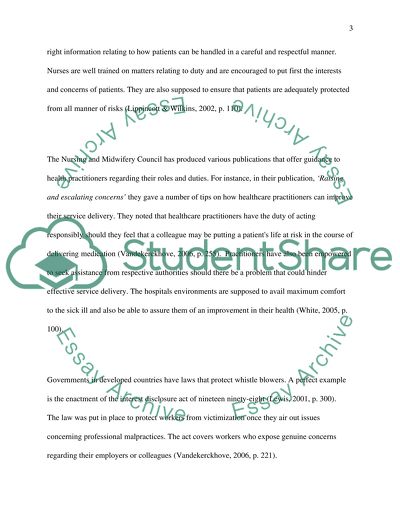Cite this document
(“Discuss Critically the Implications of Whistleblowing for Essay”, n.d.)
Discuss Critically the Implications of Whistleblowing for Essay. Retrieved from https://studentshare.org/nursing/1448104-discuss-critically-the-implications-of
Discuss Critically the Implications of Whistleblowing for Essay. Retrieved from https://studentshare.org/nursing/1448104-discuss-critically-the-implications-of
(Discuss Critically the Implications of Whistleblowing for Essay)
Discuss Critically the Implications of Whistleblowing for Essay. https://studentshare.org/nursing/1448104-discuss-critically-the-implications-of.
Discuss Critically the Implications of Whistleblowing for Essay. https://studentshare.org/nursing/1448104-discuss-critically-the-implications-of.
“Discuss Critically the Implications of Whistleblowing for Essay”, n.d. https://studentshare.org/nursing/1448104-discuss-critically-the-implications-of.


